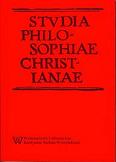Utopie poznawcze w świetle naukowego obiektywizmu
The cognitive utopias in the light of scientific objectivity
Author(s): Marian GrabowskiSubject(s): Philosophy
Published by: Wydawnictwo Naukowe Uniwersytetu Kardynała Stefana Wyszyńskiego w Warszawie
Keywords: cognitive utopias; ultimate explanations; primary theory; Maxwell demon
Summary/Abstract: In the world of diverse utopias – the assemblage of intentional beings, whose real existence is impossible and cannot be realized, although it is coveted – we define cognitive utopias. These are images, ideas, concepts or theories – the elements of scientific or philosophical knowledge, which is epistemically unavailable to us, but very much sought after. In the world of human cravings, the cognitive utopia responds to a desire of ultimate understanding, a definitive explanation, an apodictically truthful knowledge. The article discusses two examples of this from physics: Maxwell’s demon, which demonstrates the cognitive benefit of utopia, and G. Kane’s primary theory, which illustrates the cognitive utopia associated with the desire for ultimate understanding. In the second example, the operation of the regulative cognition ideal is shown, which is objectivity. Where there are obstacles in understanding, these are frequently on the side of the subject, for example prejudice, partiality or phobia. In these instances, objectivity is the self-conqueror. One of these obstacles is the desire for ultimate explanation.
Journal: Studia Philosophiae Christianae
- Issue Year: 47/2011
- Issue No: 3
- Page Range: 59-75
- Page Count: 17
- Language: Polish

